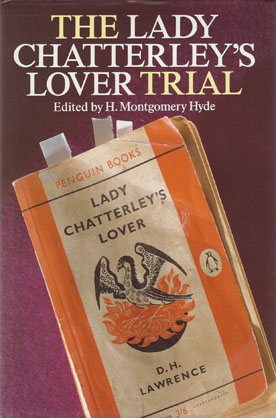
D.H. Lawrence said of Lady Chatterley's Lover: 'I always labour at the same thing, to make the sex relation valid and precious, instead of shameful. And this novel is the furthest I've gone. To me it is beautiful and tender and frail as the naked self is.' But when, in 1960, Penguin Books tried to publish the unexpurgated version, they were promptly prosecuted under the Obscene Publications Act which Parliament had passed the previous year.
The trial which followed is the most famous of its type since the act reached the statute book. The prosecution maintained that Lawrence's novel was pornographic, likely to deprave, corrupt and morally pervert anyone who might read it. ('Is it a book you would even wish your wife or your servants to read?' asked counsel.)
The defence, in response, mustered a formidable array of expert witnesses, including Rebecca West, Cecil Day Lewis, Norman St John Stevas, Roy Jenkins, Lord Annan and E.M. Forster. In still memorable testimony, they passionately defended Lady Chatterley's Lover as an honest and sincere novel of rare literary merit, and D.H. Lawrence as one of the greatest writers of the century. The 'Not guilty' verdict returned by the jury struck a crucial blow for the freedom ofliterature and publishing alike.
To mark the thirtieth anniversary of the trial, the court transcript is reproduced here together with a comprehensive Introduction by the late H. Montgomery Hyde, setting out the legal and social background to the case.